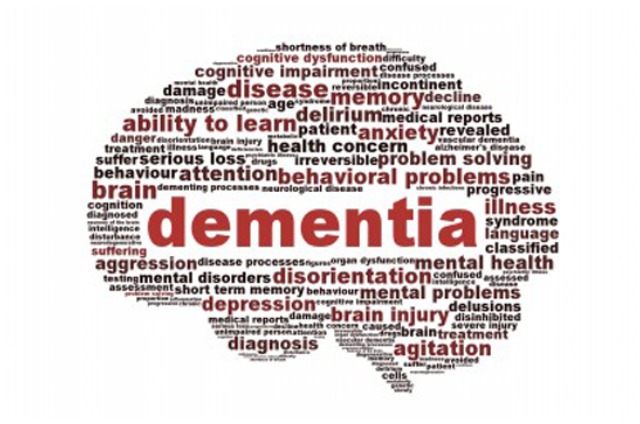Exercise and watch what you eat. Simple, right? Or not. What if other forces were at work, trying to add to your frame until you join the 58 per cent of the world predicted to be overweight or obese by 2030? Many scientists now believe that it’s not your stomach you should worry about-it’s your brain. In the past two years, scientists have published nearly 40 studies on whether the temptation of food can veer into actual addiction or not.
Think the addiction concept is an overeater’s cop-out? Experts don’t. Scientists speculate that only some people are truly addicted to food. “However, a far greater number of us may be vulnerable to the ways food can trick the brain into making us eat more than we want to,” says Dr JD Mukherji, neurologist, Max Healthcare, New Delhi. “And with the current profusion of food-themed TV shows and an escalating fast-food arms race, it’s becoming more and more difficult for our brains to resist cues to overeat.” Fight back with these tactics, and gain mastery over your meals.
Control your survival instinct
We exist on the planet because of fat and sugar, those valued treasures in the evolutionary struggle. Fat was survival fuel for cavemen, says Nicole M Avena, PhD, a food addiction researcher and assistant professor of psychiatry at the University of Florida. The macronutrient contains more calories per gram (9, in fact) than either protein or carbs. And back in the day, sugar carbohydrates helped keep us alert to potential dangers. Today we and our deskbound brethren burn far fewer calories, yet we maintain that Cro-Magnon connection to the pleasures that high-fat, high-sugar foods bring to our brains, says Avena. So the food we’re wired to desire isn’t always the food we need.
A 2010 Scripps Research Institute study found that when rats were presented with a “cafeteria-style” diet of large amounts of high-fat food, they ate almost twice as many cal ories as rats given only standard laboratory chow. It’s another piece of evidence that fatty, sugary foods may be more habit-forming than other foods. Yes, humans are more evolved than rats, but who hasn’t had a similar experience at an unlimited pizza-and-dessert buff et?
Break the habit: “Make your calories work longer. Because you no longer need to amass large stores of calories until your next mas todon kill, choose foods that have nutrients with staying power. Aim to eat at least 20 to 40gm of protein per meal, and about 25 to 35gm of fibre over the course of the day,” says Dr Sonia Kakar, a New Delhibased nutritionist. These nutrients promote fullness, may dampen the reward response to overeating and will help you fend off cravings so you eat fewer calories at later meals. Even at that pizza buffet.
Stop getting high
On food, that is. In a study in the Archives of General Psychiatry, researchers found that the brains of food-addicted people who consumed a high-calorie milkshake responded the same way the brains of drug addicts respond to a dose of cocaine. “Food addicts have the same reward signals and signs of dopamine dys function as drug addicts have,” says Dr Rajesh Kumar, neurologist, Rockland Hospital, New Delhi. And like drug addicts, food addicts may relapse when they try to curb their indulging tendencies.
“Unlike drugs, food keeps us alive. Untang ling that association can be difficult,” Dr Mukherji says. Certain foods may also have the same mood-boosting properties as drugs have. In a 2011 study in the Journal of Clinical Investigation, participants who ingested a saturated-fat solution felt happier after listening to sad music than those who ingested a saline solution. It turns out that comfort food might actually comfort us-and that makes it even more challenging to resist.
Break the habit: “You don’t need psychotherapy to stop emotional eating. You just need to reverse the reward patterns. That means hitting the pause button,” says Dr Kumar. “Recognise triggers for what they are, ride out the emotions, and then praise yourself for doing so. It’s difficult at first, but each time you reinforce the positive behaviour, you drive emotional eating into extinction,” Dr Mukherji says.
Avoid mindless eating
It’s happened to us all: you have a brutal day at work, and the first thing you do after your gruelling commute is raid your helpless refrigerator. Feels good, doesn’t it? “It’s because you’ve conditioned yourself,” says Dr Mukherji. “People eat for any number of reasons-they’re happy, sad, stressed, bored, anxious. When the trigger occurs, like your pet dog you start salivating,” Dr Mukherji says. The more often you use a fridge raid as a stress buster, the more your brain will come to expect that behaviour. Every time you see the fridge, you get attracted. Repeating this cycle can reinforce the habit.
Break the habit: Think of your growing belly, not your growling stomach. Mindless eating is just that-your brain shuts down as your gullet opens up. “We’ve found that most people focus only on the short-term rewards when it comes to foods,” says Dr Mukherji. “But what we’ve generally witnessed is that if you can train yourself to focus on the long-term consequences- the weight gain, the sickness-then you’ll activate your prefrontal cortex, or the ‘brakes’ in your brain that may prevent you from overeating. Once you can stop yourself from giving in to those momentary temptations, half the battle is won,” opines Dr Mukherji.
Escape the food traps
It’s hard to resist the siren call of the 24-hour meal. “Our modern eating environment isn’t like it was 10,000 years ago. Cheap, high-calorie foods are available on every corner,” says Dr Kakar. Fast-food joints pump out aromas to entice you, and “food porn” TV shows are spliced with ads for double-stuffed pizzas and towering burgers. “For people who have a tendency to overeat, these stimulating cues trigger unhealthy food behaviours,” she says.
Break the habit: Limit your exposure to triggers. Ask your server for the bill before the dessert menu gets a chance to reach the table. Change the channel if commercials start splashing unhealthy foods across the screen. Think twice about that pizza buff et. And if there’s a burger chain gassing the road with charbroiled aromas on your way to the healthy food joint, take a detour. “The less you engage with these cues, the easier it will be to eventually stop the behaviour,” Dr Kumar says.
-India Today










